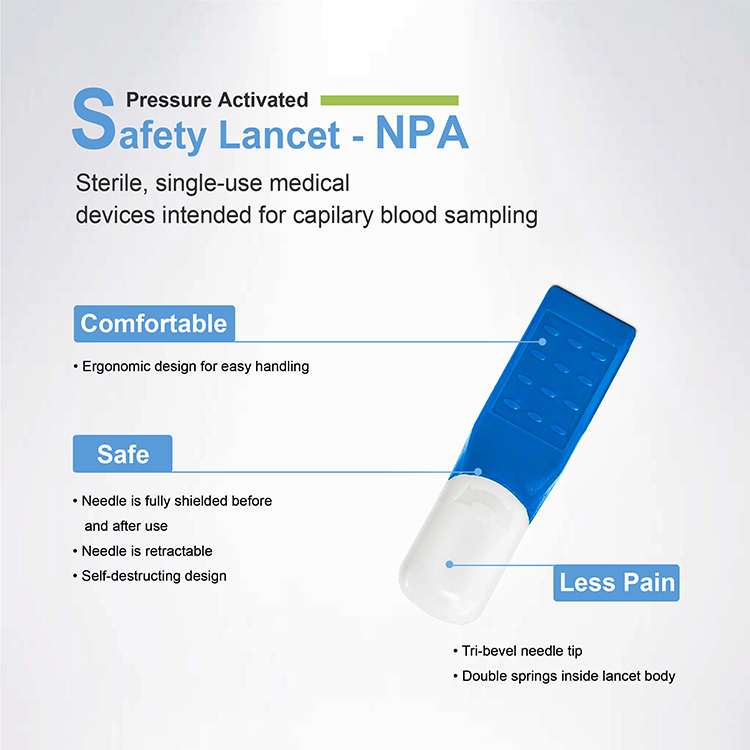Nov . 09, 2024 16:13 Back to list
Top Suppliers for Pregnancy Test Kits Worldwide for Your Needs
The Growing Market of Pregnancy Kit Suppliers A Comprehensive Overview
In recent years, the demand for pregnancy kits has surged significantly, driven by an increasing awareness of reproductive health and accessibility to healthcare products. Pregnancy kits, which typically include home pregnancy tests, are vital tools for women seeking to confirm pregnancy quickly and privately. With the growth of e-commerce and advancements in medical technology, numerous suppliers have emerged, each offering a range of products designed to meet diverse consumer needs.
Understanding Pregnancy Kits
Pregnancy kits primarily consist of urine-based test strips or devices, which detect the presence of the hormone human chorionic gonadotropin (hCG) in urine. hCG is usually present in the body after a fertilized egg implants in the uterus. Home pregnancy tests are lauded for their convenience, simplicity, and privacy, allowing women to test in the comfort of their homes.
The basic components of a pregnancy kit are the test device and, in some cases, additional tools such as pipettes or cups for sample collection. Many suppliers also provide pregnancy tracking apps or online resources to guide users through the testing process and help them understand the results.
The Market Landscape
The pregnancy kit market has evolved considerably, with various suppliers catering to different segments. Major brands like Clearblue, First Response, and EPT have established themselves as household names, known for their reliability and accuracy. Many of these brands offer multiple product lines, including digital tests that provide easy-to-read results and early detection tests that can identify pregnancy days before a missed period.
Besides established brands, numerous generic and private-label products have entered the market, often at lower price points, making pregnancy tests more accessible to a broader audience. The emergence of online retail has further democratized access to these products, allowing consumers to purchase them discreetly and conveniently from home.
pregnancy kit suppliers

Innovation and Technology
The landscape of pregnancy kit suppliers is also marked by innovation. Recent advancements in technology have led to the development of more sensitive tests that can detect lower levels of hCG and provide results with greater accuracy. Digital pregnancy tests, which display results in simple words rather than lines, have become increasingly popular for their user-friendliness.
In addition, some suppliers are expanding their product lines to include comprehensive fertility and reproductive health kits. These kits often contain ovulation tests, lifestyle recommendations, and educational materials aimed at individuals or couples trying to conceive. The integration of technology, such as mobile apps that sync with test results, is making these kits even more appealing to tech-savvy consumers.
Challenges and Regulations
While the pregnancy kit market is flourishing, it is not without challenges. Regulatory scrutiny is a significant concern for suppliers. In many countries, pregnancy tests are classified as medical devices and must meet strict safety and effectiveness standards. Compliance with regulatory frameworks is essential for suppliers to ensure the reliability of their products and maintain consumer trust.
Additionally, the proliferation of online sales has led to concerns about counterfeit products. It is crucial for consumers to purchase pregnancy kits from reputable suppliers to avoid inaccurate results and potential health risks associated with poor-quality tests.
Conclusion
The market for pregnancy kit suppliers is vibrant and rapidly evolving, driven by technological advancements and a growing emphasis on reproductive health. As demand continues to rise, suppliers must navigate regulatory challenges and competition while maintaining high product standards and consumer trust. In this ever-changing landscape, both established brands and new entrants have significant opportunities to innovate and meet the diverse needs of women worldwide. With accessibility and technology at the forefront, the future of pregnancy testing looks promising, making this market an essential component of women’s healthcare.
-
Reliable Early Pregnancy Test Kit Supplier - Multi Plastic Cassette Options
NewsJul.30,2025
-
Transferrin Rapid Test Cassette – Reliable Tumor Marker Detection
NewsJul.29,2025
-
Accurate Follicle Stimulating Hormone Test Kit | Rapid Reliable Results
NewsJul.29,2025
-
High Accuracy LH Ovulation Test Kit - Digital Results & Wholesale Options
NewsJul.29,2025
-
HbsAg Blood Rapid Test Kit for Fast & Accurate Hepatitis B Detection
NewsJul.28,2025
-
Sterile Urine Cup for Safe & Easy Collection | High-Quality Specimen Cups
NewsJul.28,2025

